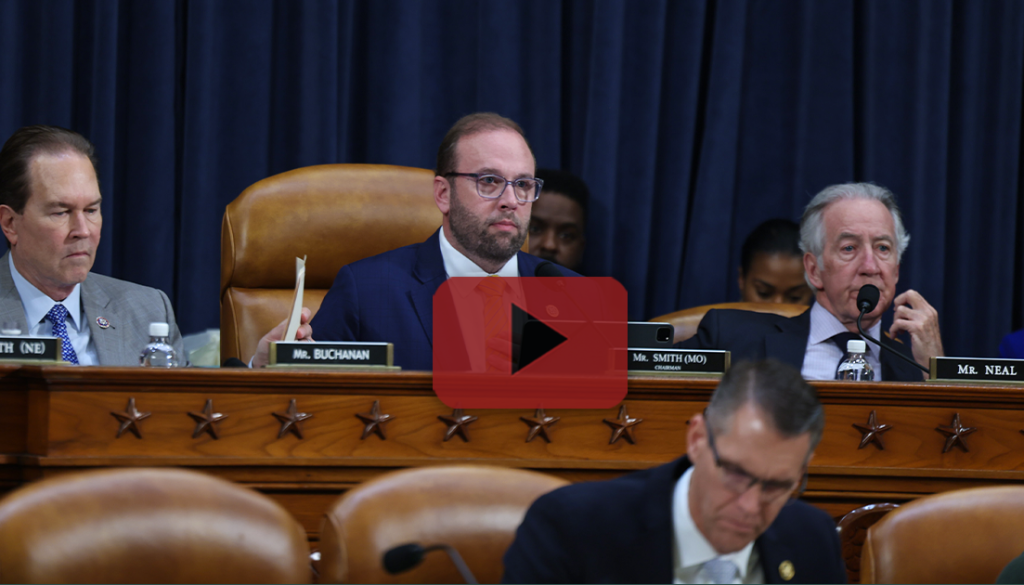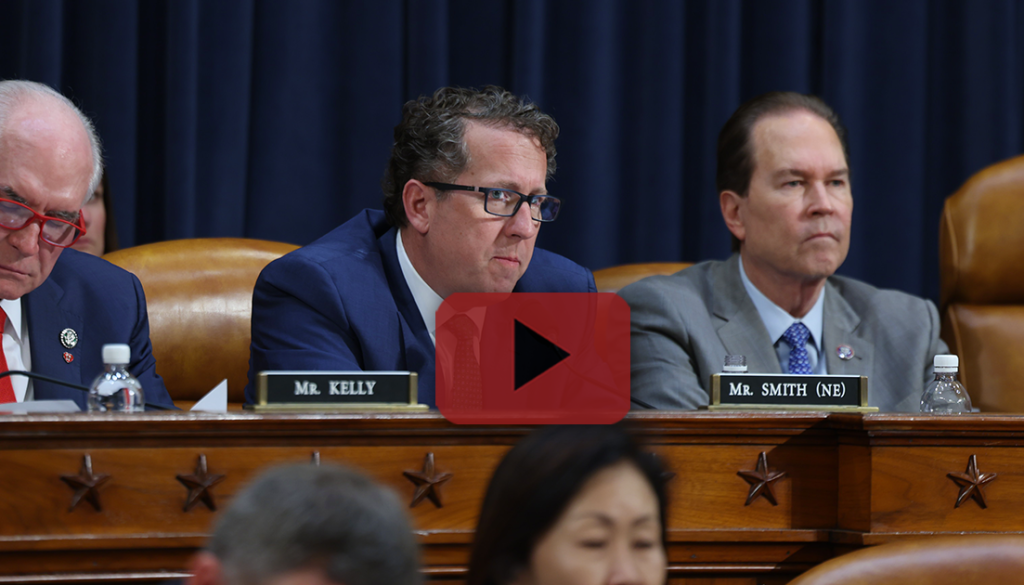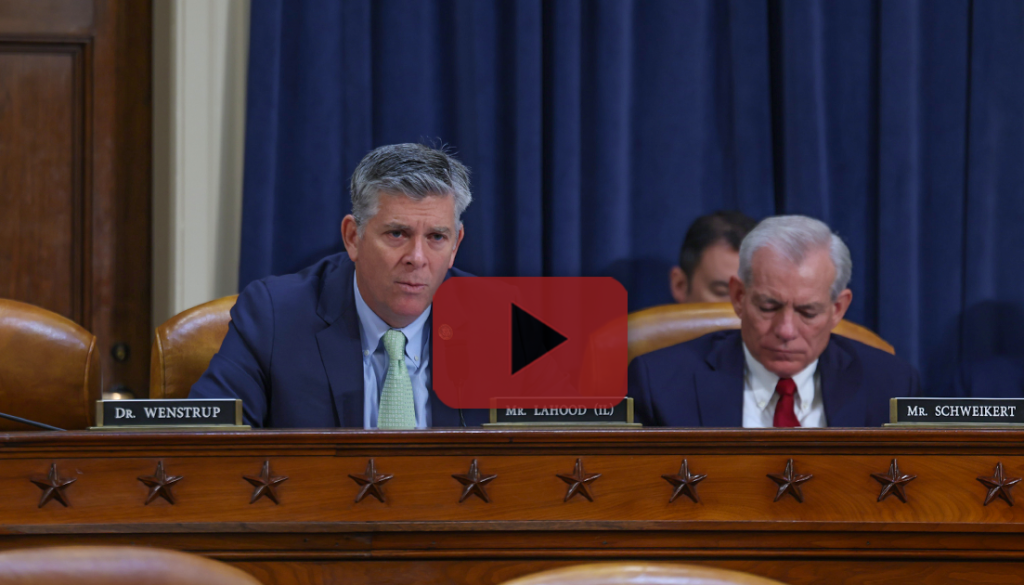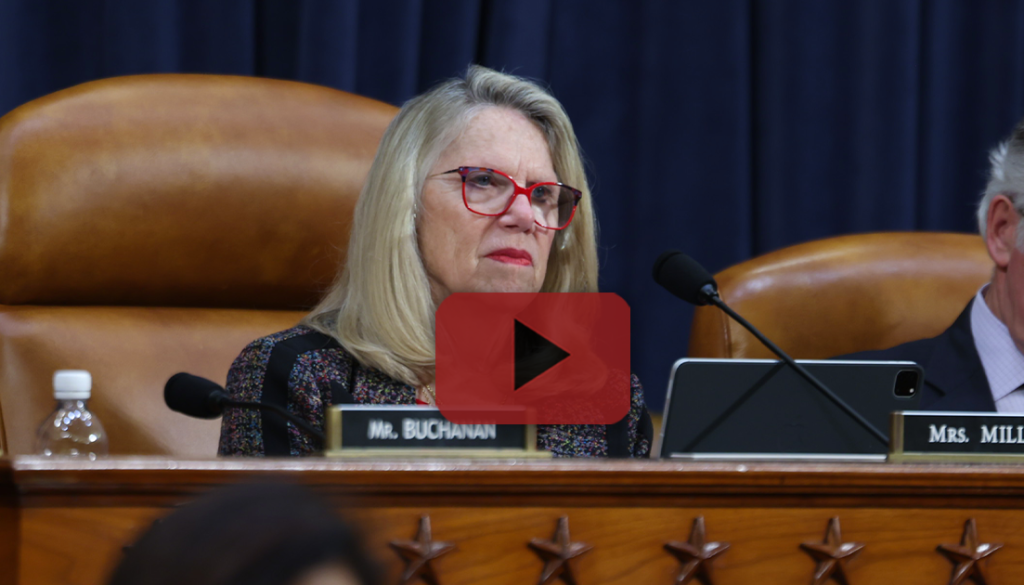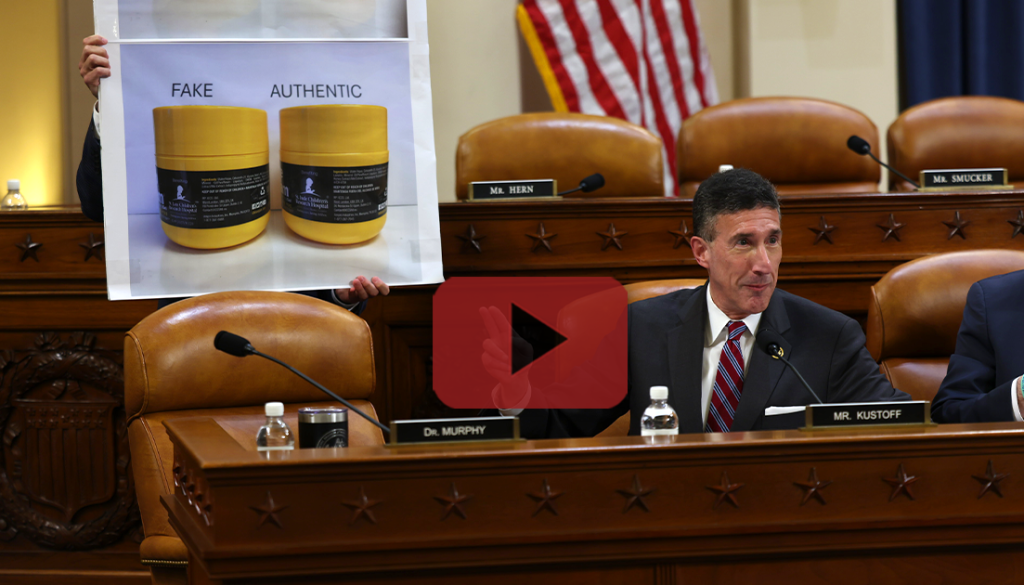Five Key Moments – Hearing with U.S. Trade Representative Tai
“China Is Eating Our Lunch…Breakfast…Dinner…Dessert”
WASHINGTON, D.C. – The Biden Administration’s trade agenda is not much of an “agenda,” does little to advance the interests of American workers and producers, and has ceded the playing field to China, members warned during a hearing with the U.S. Trade Representative, Ambassador Katherine Tai. The Biden Administration has no meaningful plan to work with allies to shift the supply chains from China or consistently enforce trade agreements to demand fair treatment for U.S. farmers or for products made by U.S. workers..
Committee members pointed to a number of missed opportunities and failures by the Biden Administration to combat China’s malign influence and stand up for American families, farmers, and small businesses:
- Fake “frameworks” and “dialogues” that are no substitute for free trade agreements that can actually be enforced on behalf of American producers and workers, like the United States-Mexico-Canada Agreement (USMCA).
- Failure to hold China accountable for abandoning its commitment to buy more American goods and respect American intellectual property rights under the Trump Phase One agreement.
- Failing to successfully open foreign markets for American farmers, contributing to a $21.5 billion agriculture trade deficit in 2023.
- Walking away from bipartisan positions held under Republican and Democrat administrations that support American innovators and protect the United States’ global technology leadership.
Biden Administration Failing American Farmers
In 2023, American farmers faced a $21.5 billion trade deficit. This follows $5.2 billion annual average trade surplus under President Trump. The Biden Administration has failed to aggressively pursue new market access for American farmers, while failing to consistently enforce parts of trade agreements that allow farmers to export their goods abroad. Ways and Means Committee Chairman Jason Smith (MO-08) took the Biden Administration to task for failing to focus on tearing down trade barriers faced by American farmers.
Chairman Smith: “Ambassador Tai, the fact that you will not even admit to a $21 billion deficit last year under your watch on agriculture trade: that’s disappointing. We have a serious problem when it comes to agriculture trade in this country, and it’s because USTR and this Administration is out to lunch. They have not been going against Thailand who has a 50 percent tariff on U.S. beef. They haven’t been going after Kenya who has a 27 percent tariff on our agricultural products…I wish that you all would lead on protecting the American farmer.”
President Biden Spends More Time Talking About Ice Cream Than Mexico’s Harmful Corn Ban
Mexico’s ban on genetically modified corn is effectively a ban on American exports of corn and a clear violation of the U.S.-Mexico-Canada Agreement (USMCA). The ban is an attack on American agriculture as 90 percent of American corn is genetically-modified. Despite Ambassador Tai acknowledging earlier that President Biden has been briefed on the issue, Trade Subcommittee Chairman Adrian Smith (NE-03) noted President Biden’s lack of public comment on Mexico’s illegal ban shows he is not concerned with how American farmers are harmed by this ban.
Rep. Smith: “I’m also concerned about rules-based trade and the perception that Mexico is getting a pass on this. The filing for the dispute resolution was roughly two years after the decree, the flagrant violation of USMCA, was made…There’s folks who would characterize the decree went from bad to worse, before it perhaps got better, but certainly not resolved. I’m concerned that our President has had exactly nothing to say. Is there a downside to our President speaking up and saying that what Mexico is doing with our corn is wrong? Is there a downside to that?”
Amb. Tai: “I am the U.S. Trade Representative in President Biden’s cabinet, and I am here to talk about the President’s trade policy agenda today. And I am telling you that we are actively pursuing litigation with Mexico using the tools of the USMCA precisely to address what we consider to be an illegitimate and unscientifically based restriction on our trade and biotech corn to Mexico.”
Rep. Smith: “Looking at what President Biden has said publicly about various issues…you’re telling me that he has chosen to remain silent on this issue. I don’t accept that as being concerned about the issue.”
Congress to Biden Administration: Stand Up for American Technology and Innovation
Multiple members during the hearing shared with Ambassador Tai their concern with the Biden Administration’s recent abandonment of bipartisan trade principles that protect American employers from discrimination and unjustified restrictions related to digital trade. Without these principles, the Administration has opened the door for foreign governments, like China, to set the rules of the road for digital trade in order to advance the interests of the Chinese Communist Party and block American companies from competing on a level playing field. Rep. Darin LaHood (IL-16), co-chair of the Digital Trade Caucus, outlined how the Biden Administration is handing China an advantage in digital trade.
Rep. LaHood: “Many of us on this side of the aisle have been exceedingly frustrated with the Administration’s inability to promote a coherent trade agenda. When we think about digital trade, obviously there’s growing concern with the Communist Chinese Party’s global economic influence and their promotion of digital trade policies that run counter to American ideals. These Chinese policies promote censorship and surveillance. They encourage human rights abuses, and they force unwanted technology transfers through initiatives like the digital Silk Road. Rather than providing a free-market alternative to the CCP’s digital governance model, this Administration sends mixed messages on the global stage by walking back long-held bipartisan digital trade proposals outlined at the World Trade Organization without clearly articulating a policy path forward.”
“China Is Eating Our Lunch…Breakfast…Dinner…Dessert”
While the Biden Administration fails to pursue an ambitious trade agenda that benefits American workers and producers, China continues its aggressive push to dominate foreign markets. China’s Belt and Road initiative and regional trade agreements have helped the authoritarian nation buy influence and align developing nations to the Chinese Communist Party. Rep. Carol Miller (WV-01) contrasted this record of China’s active, malign leadership in the world with the Biden Administration’s failure to pursue any meaningful trade initiative.
Rep. Miller: “In our hearing last year, I said that China is eating our lunch when it comes to competing for trade and investment around the world. Unfortunately, they’ve gone from eating our lunch to eating our breakfast, eating our dinner and probably our dessert. The United States is losing ground at every step. This administration is more focused on ‘woke,’ DEI, climate, and other big labor agendas than more meaningful trade policy…There have been no trade deals, no talks to expand free trade agreements… and no increases in market access under President Biden’s leadership.”
“Compared to China’s ambitious agenda, the United States is falling behind in every region in the world. China is winning in our backyard of South and Central America. They’re building on years of gains in Africa. China is establishing footholds through Central Asia, Middle East, and making inroads with our own European allies. Finally, they are out-competing us completely in Asia through their Regional Comprehensive Economic Partnership Agreement.”
A Real Example of China’s Unfair Trade Practice: Tennessee-Made Hair Gel
Ending China’s unfair trade practices that killed American jobs and damaged domestic manufacturing was a major motivation for President Trump to conduct a massive investigation of China’s unfair trade practices, apply tariffs on the majority of all imports from China, and ultimately enter into the Phase One agreement with China. The Biden Administration has done nothing to hold China accountable for violating that agreement, including failing to buy the minimum amount of required products from American producers and by continuing to steal American intellectual property. To highlight the consequences faced by American workers and producers, Rep. David Kustoff (TN-08) shared a real example of China’s intellectual property theft from his district.
Rep. Kustoff: “It [Tennessee manufacturer] manufactures hundreds of haircare products in the U.S. They’re shipped around the world. The problem is their flagship line is being counterfeited by the Chinese and sold in foreign markets…They make a product called Shine n’ Jam…The Chinese make a product called Shino n’ Jam. Same product design, same lettering…We are proud in Memphis to have St. Jude Children’s Hospital – a great research facility, a great employer, great for children and families all around the world. They’re a sponsor of this product. The fake Chinese product is St. Jams Children’s Research Hospital. Same logo, by the way, as St Jude. These products are nearly identical… the design, the labeling. It’s a real problem…You see this on a global scale with other products that are being counterfeited. We know what the Chinese are supposed to do as part of the Phase One agreement. Ambassador, what tools do you have in the toolbox to crack down on stuff like this?”
Ambassador Tai: “…In terms of the China Phase One agreement and that underlying Section 301 report and findings around intellectual property rights abuses in China, I would say that those are of a scale that obviously include these types of challenges. The four-year review that we are undertaking right now…is focused on the question of how effective have the tariffs been in improving China’s performance with respect to IP rights, abuses, and forced tech transfer. We see changes in their [China’s] laws, but these types of things are continuing to happen…It’s an unfair trade practice. We would be happy to connect with this particular stakeholder, if we’re not already connected, to see how we can connect them with more tools.”
Kustoff: “I actually don’t think you are.”

